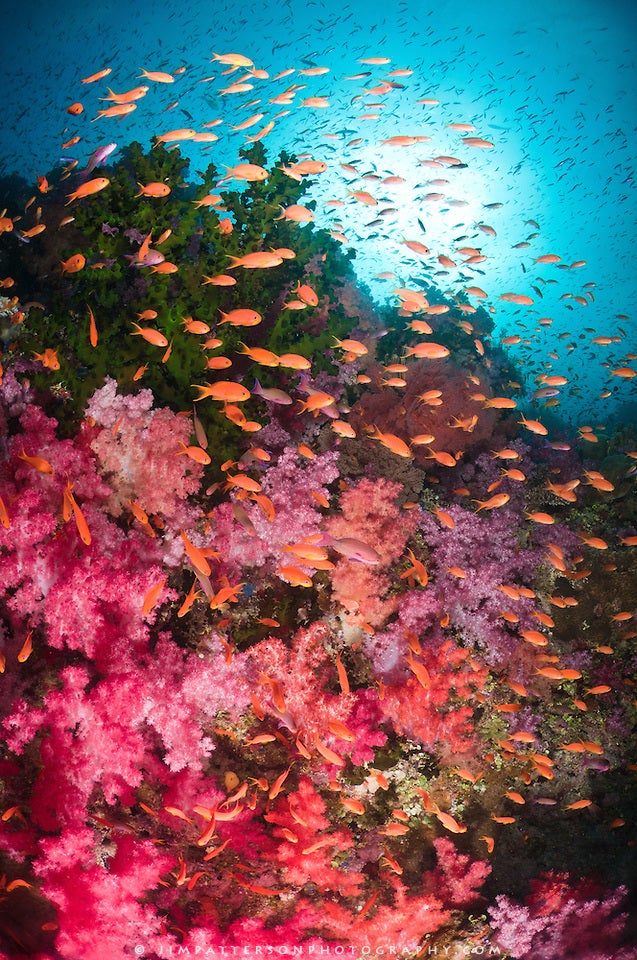By: Rod Fujita & Kendra Karr
Fisheries management is principally focused on managing fishing pressure, with the goal of keeping individual fish stocks healthy enough to produce good yields. But fisheries also affect the basic processes that keep ocean ecosystems healthy. This is why it is important to understand how many fish need to be in the system to maintain the many important services that an ocean ecosystem can produce — including the maintenance of biodiversity, tourism value, and fisheries — and to manage fisheries so that fish populations remain at about that level.
The evidence that fish are important regulators of ecosystem processes is particularly strong in coral reefs. The abundance and variety of fish is one of the most striking aspects of a healthy coral reef. Some species transport energy and nutrients between seagrass meadows and the reefs. Grazing fish species on a healthy coral reef keep seaweeds that would otherwise over-grow the reef in check. Predators regulate populations of prey species, responding to natural variability by adjusting their feeding rates and numbers. On a healthy reef, many different species occupy each of these niches, and each does their job in a slightly different way. This enables the reef to resist threats and other changes (like hurricanes) and to recover from very storms or human impacts, within limits of course. Read More










